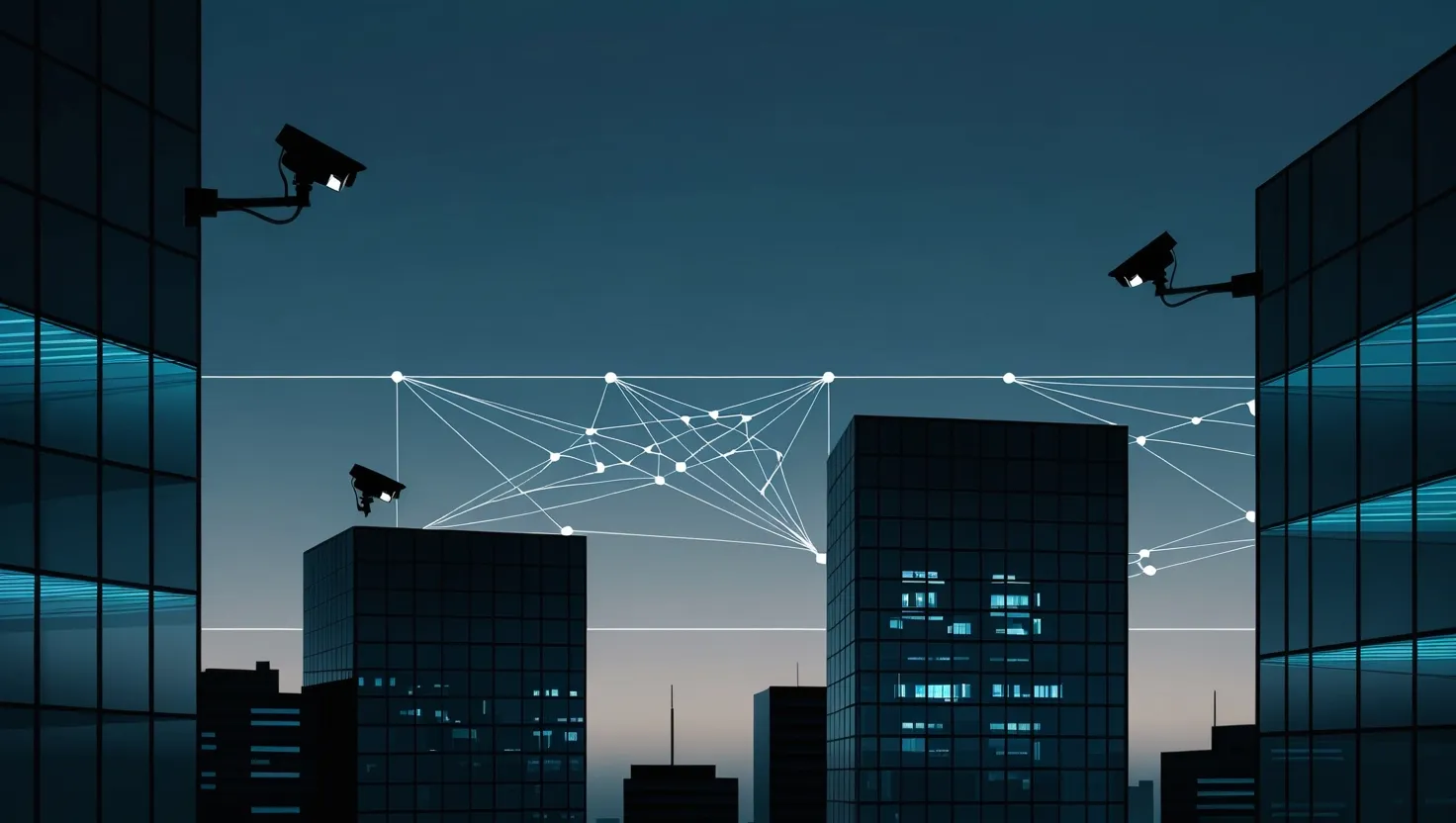Mass surveillance has become an inescapable reality of modern life, permeating our digital and physical worlds in ways both obvious and obscure. While we’re all familiar with security cameras and online tracking, the true scope of surveillance extends far beyond what most people realize. Let’s pull back the curtain on some of the most sophisticated - and concerning - mass surveillance programs operating today.
The Sentinel Program represents a quantum leap in facial recognition technology. No longer confined to static cameras, this AI-driven system can identify and track individuals across entire cities using a network of mobile sensors. From traffic cameras to drones to private security feeds, Sentinel aggregates visual data from countless sources to create a real-time map of human movement.
What makes Sentinel truly unnerving is its predictive capabilities. By analyzing patterns of behavior over time, the system can anticipate where a person is likely to go next with startling accuracy. Law enforcement agencies claim this allows them to prevent crimes before they occur. But at what cost to personal privacy and freedom of movement?
“Those who would give up essential Liberty, to purchase a little temporary Safety, deserve neither Liberty nor Safety.” - Benjamin Franklin
This prescient quote from one of America’s founding fathers seems more relevant than ever in the age of mass surveillance. But would Franklin have considered privacy an “essential liberty” in today’s hyper-connected world? At what point does the pursuit of security become its own form of tyranny?
Project Glass Eye takes a more celestial approach to tracking the population. Using a constellation of advanced satellites equipped with infrared sensors, this program can detect and monitor heat signatures across vast swaths of the planet’s surface. Every vehicle, building, and warm body becomes a data point to be analyzed.
The stated purpose is to track the movement of materials used in weapons manufacturing. But the technology is precise enough to follow individuals, raising major concerns about how else it could be employed. If a government can watch your every move from space, is any activity truly private anymore?
Closer to home, the Digital Echo System taps directly into the ocean of data we generate through our social media use. Far beyond simple keyword monitoring, this sophisticated program uses metadata analysis to map out intricate webs of human relationships and interactions.
By examining factors like frequency of contact, sentiment analysis, and behavioral patterns, Digital Echo can infer a shocking amount about a person’s life, beliefs, and intentions - often with greater accuracy than the individual’s own self-assessment. When our casual online activities become a psychological profile in a government database, have we surrendered the sanctity of our inner lives?
“The ultimate goal of technology, the telos of techne, is to replace a natural world that’s indifferent to our wishes — a world of hurricanes and hardships and breakable hearts, a world of resistance — with a world so responsive to our wishes as to be, effectively, a mere extension of the self.” - Jonathan Franzen
Franzen’s observation highlights the double-edged nature of our technological progress. We’ve created systems of unprecedented power and convenience, but at what point do they begin to warp the very fabric of human experience? Can we maintain our autonomy in a world that caters to our every whim?
Operation Mirror Pool takes a more direct approach by intercepting and storing vast quantities of internet traffic. Using sophisticated analysis tools, intelligence agencies can sift through this ocean of data to reconstruct a detailed picture of online activity - from innocuous web browsing to sensitive communications.
While ostensibly focused on catching criminals and terrorists, the sheer scale of data collection means that innocent civilians are inevitably swept up in the dragnet. When every email, message, and web search becomes part of a permanent record, how does that shape our behavior? Do we begin to self-censor, even in our most private moments?
The Prism Protocol pushes even further, allowing direct access to the servers of major tech companies to monitor email content in real-time. By flagging messages containing certain keywords or patterns, intelligence analysts can zero in on potential threats with unprecedented speed and accuracy.
But who decides what constitutes a threat? And how can we trust that such a powerful tool won’t be abused for political or personal gain? The line between security and oppression can be vanishingly thin.
“The NSA has built an infrastructure that allows it to intercept almost everything. With this capability, the vast majority of human communications are automatically ingested without targeting. If I wanted to see your emails or your wife’s phone, all I have to do is use intercepts. I can get your emails, passwords, phone records, credit cards.” - Edward Snowden
Snowden’s revelations shook the world, but have we truly grappled with their implications? How much of our lives are we willing to expose in the name of national security? And can we trust those in power to wield such capabilities responsibly?
The Urban Shield Network takes a more holistic approach to city-wide surveillance. By integrating data from countless sensors - air quality monitors, traffic cameras, gunshot detectors, and more - it creates a real-time digital model of urban environments. While pitched as a tool for emergency response and urban planning, the potential for tracking individual movement and behavior is immense.
As our cities become “smarter,” are we sacrificing privacy for convenience? How do we balance the benefits of data-driven urban management with the need for personal autonomy?
Finally, the Global Mesh System represents perhaps the most pervasive form of surveillance yet devised. By continuously tracking the location and usage patterns of smartphones, it can predict individual behavior with uncanny accuracy. From your daily commute to your shopping habits to your social circles, the system builds an ever-evolving model of your life.
The implications are staggering. When algorithms can anticipate our actions before we even make them, do we still have true free will? Or are we simply acting out roles assigned to us by lines of code?
“The greatest danger to liberty today comes from the men who are most needed and most powerful in modern government, namely, the efficient expert administrators exclusively concerned with what they regard as the public good.” - Friedrich Hayek
Hayek’s warning about the dangers of technocratic control seems particularly relevant in an age of algorithmic governance. When our lives are increasingly managed by opaque systems of incredible complexity, how do we maintain meaningful democratic oversight?
As we grapple with these issues, it’s crucial to remember that technology itself is neutral. These surveillance systems, as powerful as they are, are simply tools. The real question is how we as a society choose to use them. Do we accept ever-increasing monitoring as the price of security and convenience? Or do we draw a line in the sand and say “enough is enough”?
There are no easy answers. The benefits of these technologies in fighting crime, preventing terrorism, and managing complex urban environments are real and significant. But so too are the risks to privacy, autonomy, and the very nature of human freedom.
Perhaps the most important thing is to stay informed and engaged. These systems thrive on opacity - the less we understand about them, the more easily they can expand unchecked. By shining a light on mass surveillance, we can at least ensure that its growth happens with our knowledge and consent, rather than in the shadows.
What do you think? How much privacy are you willing to trade for security? Are there lines that shouldn’t be crossed, even in the name of public safety? And how can we as citizens ensure that the awesome power of mass surveillance is used responsibly?
The choices we make today will shape the world of tomorrow. Let’s make sure they’re choices we can live with.






